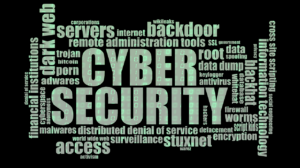The intent of surveillance was, initially, good
J. Edgar Hoover transitioned from the Bureau Of Investigation in to the Federal Bureau of Investigation at the start of the 20th Century. The agency was developed as a reaction to a new world, in which large numbers of people inhabited cities, rather than rural areas. The migration meant the government faced a new level, and type of crime, where criminals and had access to motor vehicles and telephones.
The authorities dealt with these changes by implementing totally new crime detection and resolution techniques. They hired accountants to examine financial records in minute detail, as part of their investigations, and applied agents in the field to gather never before seen layers of information. What they found was processed centrally, to determine the root of the crimes which had taken place.
Catching criminals begins with information. Police forces around the world and other arms of Law enforcement are, in some ways, simply information gathering machines, backed by the judicial system and in the pursuit of a specific goal for the information.
We have just become used to the fact that authorities tap in to our electronic correspondence
It has been 5 years since Edward Snowden disabused us of the notion that we had any electronic privacy. When he left the CIA in May 2013, holding a USB key which contained evidence about the level of electronic surveillance to which we were subject, there was outcry.
In a small amount of time, we came to understand that it would be foolish for us to believe that any electronic communication we undertake is outside the grasp of the authorities. Each of us is aware that a smartphone, as well as being an effective communication device, is, in essence, a portable monitoring station, packed with sensors, constantly transmitting our location, speed, altitude, mood, words and behaviours. Information gathered is sent ‘back,’ using a mobile data connection that we, ironically, often pay for ourselves, to any number of app providers and, thereby, any sufficiently motivated government.
The new frontier of government monitoring
Since Snowden, surveillance capabilities available to governments have progressed rapidly. What many people may not realise is that there are now facilities to monitor them outside the digital realm. Police forces can now establish an individual’s identity in multiple ways, track him as he moves in the real world, and even determine if he is lying – all in real time and all from a distance.
Here are some examples:
- Human Genome mapping to solve crimes: The FBI in the US has recently solved 2 crimes using publicly held human genome information. In the case of the ‘Golden Gate Killer’ a decades old crime, DNA taken from the scene many years ago was matched with a family member of the criminal, who had submitted his DNA to a genome mapping facility as part of the process of investigating his own family tree. The police now believe that so many people have used these genetic sequencing facilities, that they could establish the family of any criminal in the same manner.
- Using AI to recognise someone’s ‘gait’ :The way we carry ourselves when we walk is almost as unique as a fingerprint. Chinese data scientists have developed a tool which analyses the way people walk and can identify them from it. Their AI algorithm is so accurate that it may be used to replace fingerprinting at airports.
- Cornell University Body scanning: Researchers at Cornell university have a working model of another AI based system. This time, it analyses multiple video camera feeds, including one infra red sensor, to determine, at a distance, whether someone is lying.
- Real time facial recognition :Real time facial recognition has been used in China this year at natural human choke points (in one example, a busy rail station during a national holiday.) The software scanned 50,000 faces in a day and police using the system apprehended a number of suspects they wanted to speak to. Amazon is in the process of selling a similar system to a number of US Law Enforcement offices.
- Real time license plate recognition :A number of countries use systems under which police cars passively picture and analyse the license plates of vehicles they encounter. America’s system is called the ALPR – American License Plate Readers – scheme. Using the technology, every car’s position is logged each time it passes a police car fitted with the capability. The police do not need a warrant to capture or record images.
Potential ramifications of these new technologies
It’s not often that you see all of these capabilities detailed in one place. They tend to be drip fed to us with good news stories concerning the terrorists and violent criminals they apprehended.
Freedom is a spectrum and, in the Western world, law abiding citizens may not need be concerned about these capabilities. In countries with authoritative regimes, like Turkey, however, journalists and people who speak out against the government would have every right to be concerned.
More worrying for everyone is that at least some of these schemes are being deployed by law enforcement offices without a policy in place. When some monitoring software is only 8% accurate (as in the case of this UK trial of a facial recognition facility) even Westerners may have legitimate questions.
It is also worth noting that there are concerns about the racial bias present in some AI solutions. For example, in the same facial recognition example, the software was less accurate at identifying black faces.
Finally, our political leaders don’t always understand what they are looking at when these things are explained to them. At Mark Zuckerberg’s congressional hearing, senators struggled with the rudiments of social media. Questions have to be asked as to whether they can legislate effectively without a deep comprehension of the technologies they have been asked to consider.
There are clear benefits in being able to track criminals. Unfortunately, as they are ‘followed’ in the real world with these new technologies, our information is captured, too. In some ways, the question for each of us is, will we trade our physical privacy for a future with no crime?





